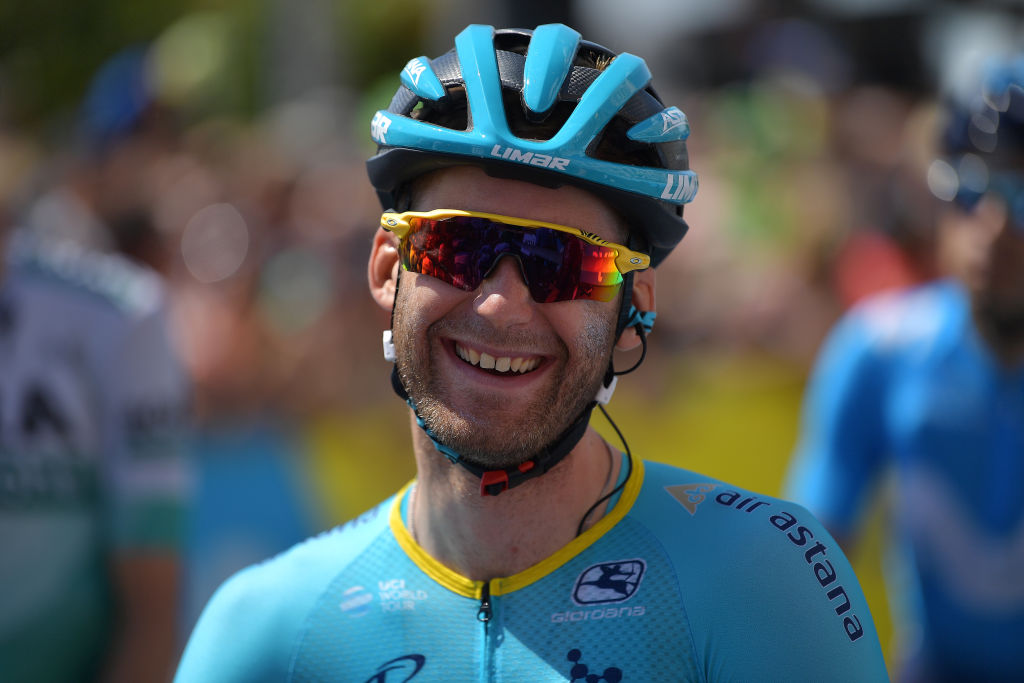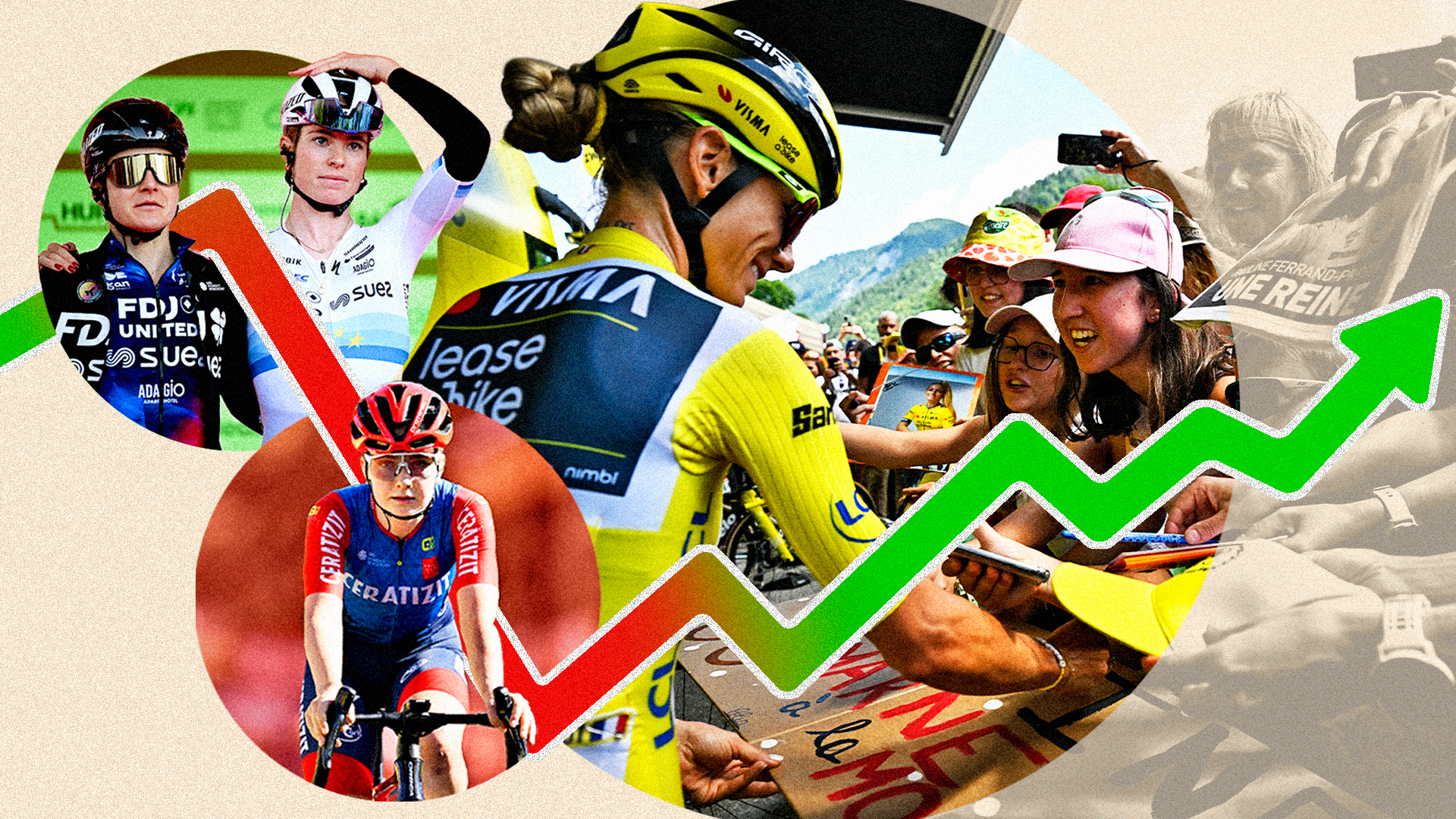After COVID-19 test roller coaster, Houle heading to Tour de France
Canadian named to Astana's team following double negative tests

The latest race content, interviews, features, reviews and expert buying guides, direct to your inbox!
You are now subscribed
Your newsletter sign-up was successful
Canadian Hugo Houle has been declared COVID-19 free and has been selected for Astana's team for the upcoming Tour de France following one positive test for the virus after Tour de Pologne was overturned by two later PCR tests and an antigen test that came back negative.
It's a relief for the 29-year-old who was forced to sit out Il Lombardia and a major change to his racing schedule, which originally had him targeting Tirreno-Adriatico and the Giro d'Italia. So far, Houle is the only Canadian named to the Tour de France.
"It's a really important race for me and the team," Houle tells Cyclingnews. "Miguel Angel Lopez can finish on the podium of the Grand Tours and I'm sure it's going to be a big goal for us to get him a good place on the GC. I'm climbing better now so I will try to go in good breakaways if the opportunities come. Of course, I will follow the instructions from the team and make sure I do the best work for the team and make them happy."
After passing two COVID-19 PCR tests before racing the Tour de Pologne, Houle learned that a test he took three days before Il Lombardia was positive. It brought everything to a sudden halt.
"I don't know what happened there. But I know that [before] the positive test, I was going to Lombardia, so I was following the UCI protocol. Three days before Lombardia my test returned positive. From there on I had to isolate myself and my teammate had to have tests to show that the guys who were with me in Poland were fine to race," said Houle.
"Everyone in the team returned negative PCR tests. That was good news for us. I just stayed home and relaxed because there was nothing else to do - we waited six days and I went to do a new PCR test in the same laboratory and it came back negative. So from there, I started to do some more testing. I've done another PCR test on Friday, that also came back negative."
The UCI confirmed to Cyclingnews on Monday that by the time the Tour de France begins it will have been two weeks since the positive test, and his pre-race tests coming this week "should reassure everyone."
The latest race content, interviews, features, reviews and expert buying guides, direct to your inbox!
Houle says he can't say the positive was a false result but said he followed up the two negative PCR tests with a serological test which looks for antibodies to the virus, which might indicate he had recovered from an infection. That test was also negative.
Under the UCI protocols, it is recommended that riders who test positive have further tests to rule out any damage to the heart muscle, as even a mild COVID-19 infection can affect the heart.
Houle said he underwent a stress test, electrocardiogram and VO2 max testing and everything came back normal. "I also had a scan done of my heart that was fine also. We did everything we could do," he added.
"At the end of the day I'm fully healthy and there is no consequence from the positive test. I can't say if it's a false positive, a problem in the lab, but I know I followed the procedure and I did all I could to be free to race and keep going."
The positive test was shocking, he said, but he never had any symptoms and never had a fever. "It had a lot of impact on life - when you have a positive test you have to stop everything, change your plans. I stopped training because I couldn't race for at least two weeks. So I chose with the doctors of the team to rest completely for four days. After that, I did some home trainer for two days.
"When I got the negative results I was allowed to go out on the road again and keep training. I don't think it had so much impact. I'm a little more rested. I think it was the right thing to do."
During the Tour de France, COVID-19 testing will continue and Houle's case highlights the possibility of false-positive results.
"Now that I returned a positive test I'm aware of the consequences. I don't care about having a test now, I just hope the results come back negative," Houle said. "In the case of the Tour de France, you make a lot of sacrifices and train really hard and you come into the race and get a positive test, it's a big disappointment.
"But in the end, the tests are there, and we have to do it. The UCI did their job - every country recommends those tests, that's the best we have. We have to respect that and keep our protocol in place."
The Tour de France will operate on a policy that if two riders from any one team test positive for the virus, the team will be asked to withdraw from the race. It's a serious concern, especially considering other potential false positives in recent weeks from Omer Goldstein (Israel Start-Up Nation), Silvan Dillier (AG2R La Mondiale) as well as Inge Van der Heijden, the U23 women's cyclo-cross world champion.
"For sure, there may be people having positive tests without symptoms. I think maybe I was an exception or a mistake happened somewhere, I don't know, but we still have to trust those tests and the protocols in place," the Canadian added.
"I think there might be a little chance of false tests - that's not new. They say 30 per cent of the PCR tests can go wrong either false negative or false positive. But I think what is important is we all stay really careful and make all the procedures and hope everything goes right. There's not much else we can do. I don't want to stress myself about this. I'm healthy and I'm ready to race, and I hope I return PCR negative from now on."

Laura Weislo has been with Cyclingnews since 2006 after making a switch from a career in science. As Managing Editor, she coordinates coverage for North American events and global news. As former elite-level road racer who dabbled in cyclo-cross and track, Laura has a passion for all three disciplines. When not working she likes to go camping and explore lesser traveled roads, paths and gravel tracks. Laura specialises in covering doping, anti-doping, UCI governance and performing data analysis.
